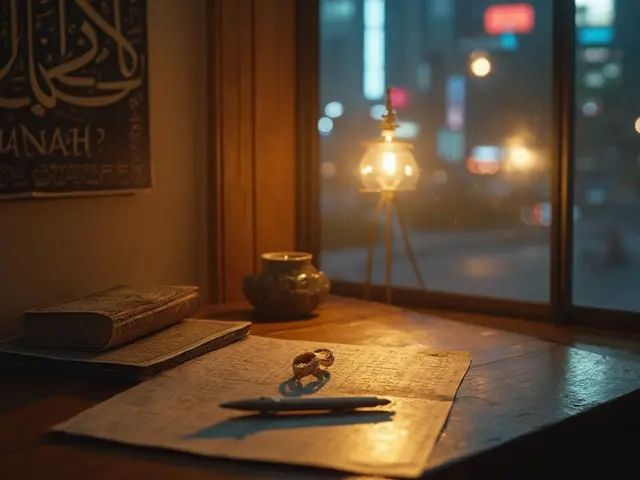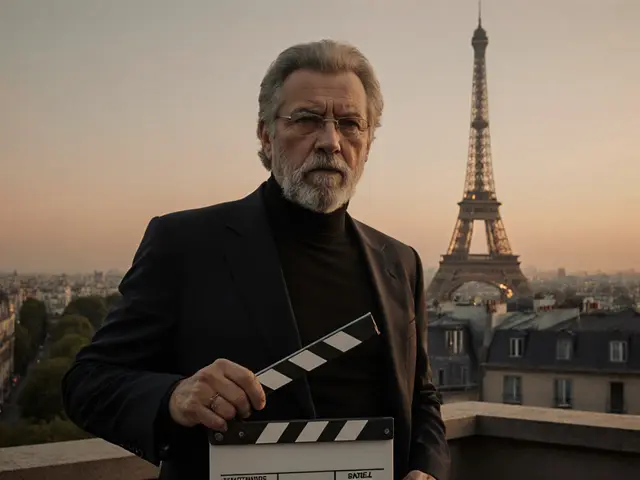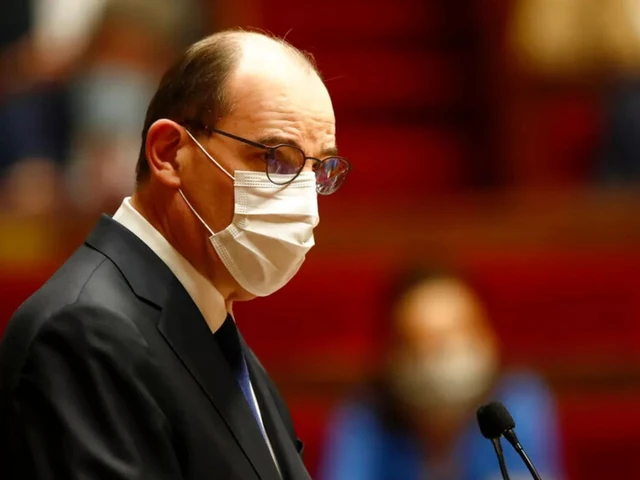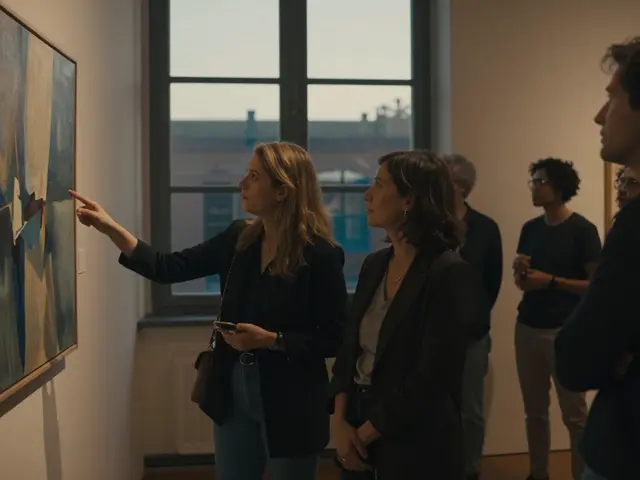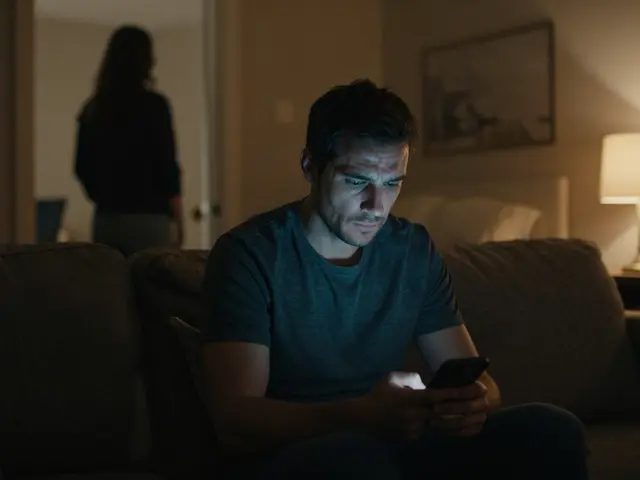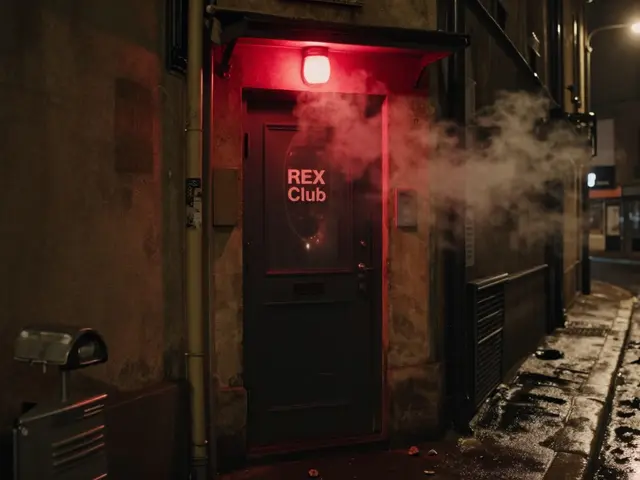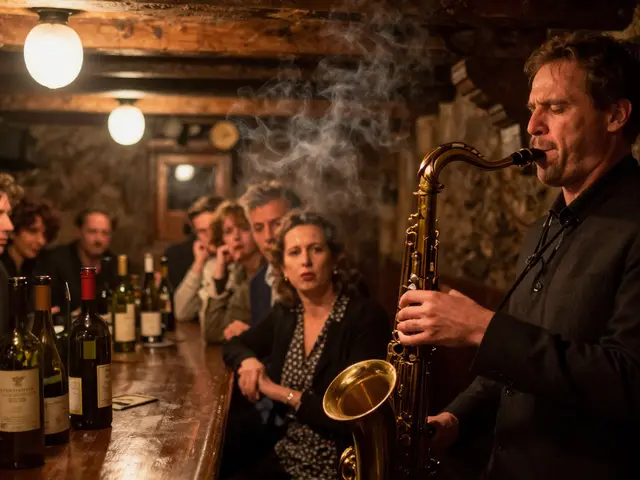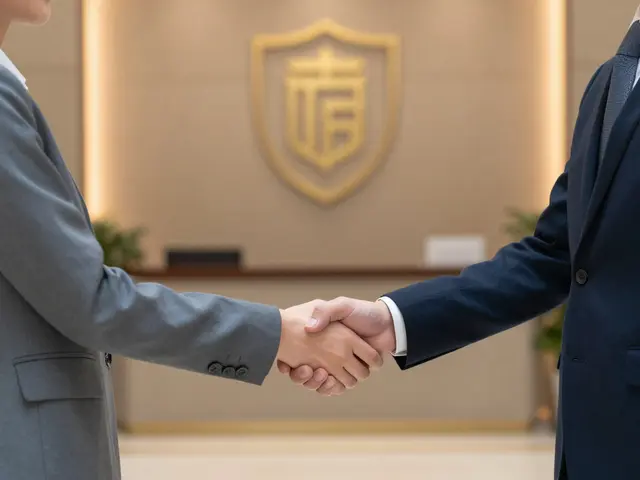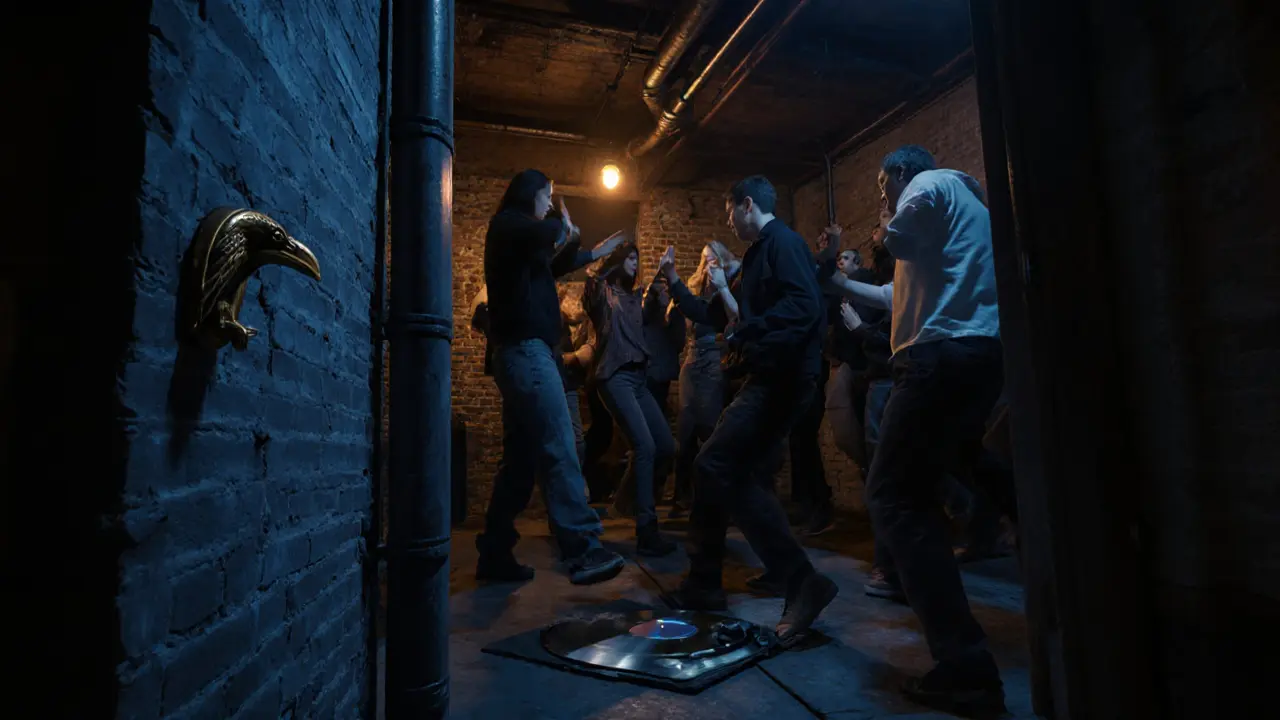
David Perry didn’t just open a club in Paris. He rewrote the rules of what a nightlife space could be - and in less than three years, he turned a forgotten basement under a 19th-century building on Rue de la Paix into the most talked-about destination in the city. No fancy marketing campaign. No celebrity endorsements. Just a clear vision, a refusal to follow trends, and a deep understanding of who actually shows up after midnight.
The Basement That Changed Everything
In 2022, the space now known as Le Ciel Noir was a storage unit for a shuttered lingerie boutique. The landlord wanted to tear it down. Perry saw something else: a raw, echo-heavy room with 12-foot ceilings, exposed brick, and a single rusted pipe running across the floor. He paid €85,000 for the lease - all he had saved. No investors. No loans. Just a handwritten list of what he wanted: no velvet ropes, no dress code, no bottle service, and no DJs playing the same four tracks on loop.
He hired a sound engineer who’d worked on underground raves in Berlin and told him: "I don’t want bass you feel. I want bass you remember." The result? A custom-built 8-subwoofer system tuned to 28Hz - deep enough to vibrate the fillings in your teeth, but clean enough that you could still hear the whisper of a voice across the room. People started showing up not for the name, but for the feeling.
The Rules No One Else Followed
Perry didn’t care about Instagram influencers. He didn’t want models posing by the bar. He wanted people who came because they were curious, not because they were paid to be there. So he made a rule: no photos allowed inside. Not even on phones. Staff were trained to politely ask guests to put devices away - and if they refused, they were asked to leave. No exceptions.
At first, people complained. "How am I supposed to post this?" they’d say. Perry’s answer was simple: "You’re not. That’s the point." Within six months, word spread. People started coming not to show off, but to disappear. To dance without being watched. To talk to strangers without the pressure of being recorded. The absence of photos became the biggest attraction.
The Music That Broke the Mold
Paris nightlife in 2023 was stuck in a loop: house remixes of pop songs, EDM drops every 12 seconds, DJs playing the same 10 tracks everyone knew. Perry flipped it. He booked artists who didn’t have Spotify playlists. A percussionist from Senegal who played only hand-drums made from goat skin. A Japanese noise artist who used modified typewriters and broken radios. A French jazz drummer who played only in the dark, with no lights on stage.
He didn’t charge cover on Thursdays - just asked people to bring a vinyl record they loved and leave it behind. By 2024, Le Ciel Noir had a collection of over 1,200 records, each with a handwritten note from the donor. People came back just to see what new record had been added. Some came to find the one they left. Others came to hear the music played from those records - live, on a vintage turntable, through a 1970s Ampex tape machine.
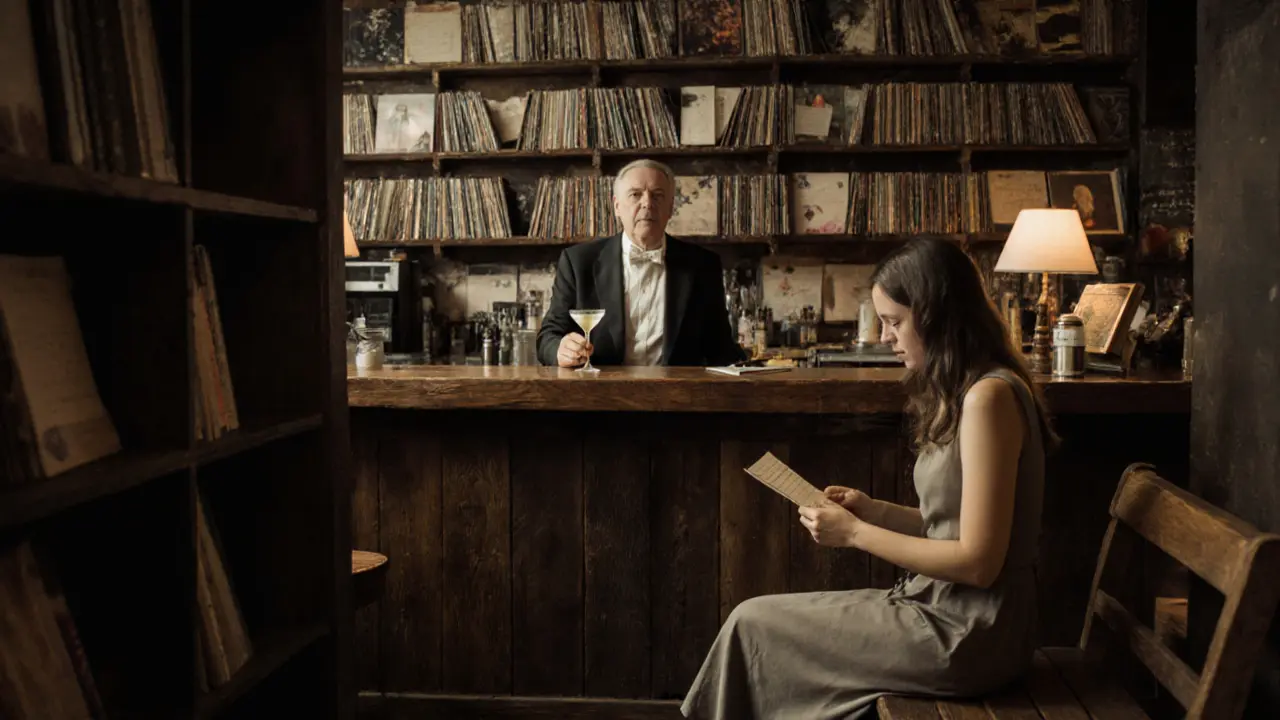
The Staff Who Became the Soul
Perry didn’t hire bartenders. He hired storytellers. He recruited people who’d been fired from other clubs for being "too weird" - a former librarian who knew the history of every song ever played in Paris, a trans artist who painted faces with glow-in-the-dark pigment, a retired opera singer who mixed cocktails while humming Puccini.
Each bartender had a signature drink named after a local legend. The "Maurice" - gin, elderflower, and a drop of absinthe - was named after a man who’d lived in the building since 1952 and used to play accordion on the roof. The "Clara" - mezcal, smoked salt, and orange blossom - honored a woman who danced every night for 37 years, even after her husband died. People didn’t come for the alcohol. They came to hear the story behind it.
The Night Paris Forgot
Paris had a reputation for being glamorous, expensive, and polished. Perry’s club was the opposite. It had no neon signs. No logo on the door. No website. Just a single black door with a brass knocker shaped like a raven. You had to know the code to get in. And the code changed every week - whispered by the person in front of you, or written on a napkin passed to you by a stranger.
By 2025, Le Ciel Noir was the most visited underground venue in Europe. Not because it was loud. Not because it was cheap. But because it was real. No filters. No pretense. No marketing. Just a space where people felt seen - not as customers, but as participants.
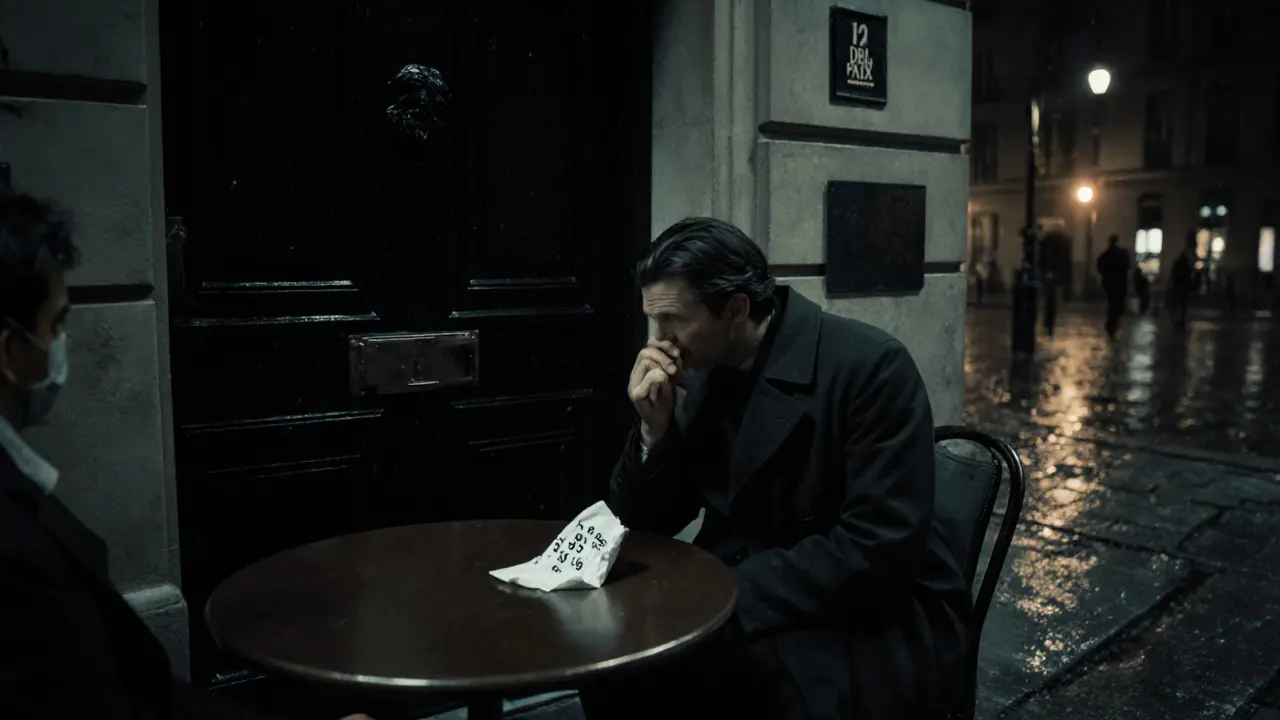
Why It Worked When Nothing Else Did
Other clubs tried to copy Perry. They added no-photos policies. They hired eccentric staff. They played obscure music. But they still charged €200 for a bottle of champagne. They still had velvet ropes. They still wanted viral posts. Perry never cared about being trendy. He cared about being necessary.
He didn’t want to be the biggest club in Paris. He wanted to be the only one that mattered to the people who showed up. And that’s what made him unstoppable.
The Ripple Effect
Since Le Ciel Noir opened, at least seven other underground spaces in Paris have opened with similar rules - no phones, no VIP sections, no branding. One even banned all electronic music. Another only plays recordings of birdsong and rainfall. None of them have Perry’s success. But they all say the same thing: "We wouldn’t have dared if he hadn’t done it first."
Perry never gave an interview. He never appeared on TV. He doesn’t have social media. But his name is whispered in back rooms across the city. People say he walks through the club every night, quietly refilling glasses, wiping down tables, listening. Not as a boss. Not as a founder. Just as someone who still believes the night should be for living - not for posting.
Who is David Perry?
David Perry is the founder of Le Ciel Noir, an underground nightclub in Paris that became a cultural phenomenon by rejecting mainstream nightlife norms. He has no public social media presence, rarely gives interviews, and built his reputation through actions, not promotion. Before opening the club, he worked as a sound engineer in Berlin’s underground rave scene and later as a curator for experimental music events in London.
Where is Le Ciel Noir located?
Le Ciel Noir is located in a basement beneath a 19th-century building at 12 Rue de la Paix in Paris’s 2nd arrondissement. The entrance has no signage - just a black door with a brass raven knocker. Access is by word-of-mouth invitation or a weekly code shared by regulars.
Why are photos banned at Le Ciel Noir?
Photos are banned to preserve the intimacy and authenticity of the experience. Perry believes nightlife should be lived, not documented. The rule forces people to be present - to connect with others, to dance without self-consciousness, and to let the night unfold without the pressure of performance. This policy became one of the club’s defining traits and helped it stand out in an era dominated by social media.
What kind of music is played at Le Ciel Noir?
The music at Le Ciel Noir is intentionally eclectic and experimental. You’ll hear field recordings from Senegal, analog noise from Tokyo, live jazz performed in total darkness, and vinyl-only sets from obscure 1970s French composers. There are no DJs playing Top 40 remixes. The playlist is curated by Perry and his team based on submissions from guests and local artists who rarely perform elsewhere.
How did David Perry fund Le Ciel Noir?
Perry funded the club entirely with his personal savings - €85,000 from years of working as a sound engineer. He took no investors, applied for no loans, and refused sponsorships. He paid for the sound system, furniture, and renovations himself. The club only started turning a profit after nine months, when word spread organically through word-of-mouth and underground networks.
Is Le Ciel Noir open to the public?
Yes, but access is not guaranteed. The club is open Thursday through Saturday nights, from 11 p.m. to 4 a.m. There is no website, no online booking, and no posted schedule. Entry is based on a weekly code shared through trusted networks - often passed along by previous guests or found in handwritten notes left in nearby cafés. Walk-ins are accepted if space allows, but priority is given to those who’ve been before.
What impact has David Perry had on Paris nightlife?
David Perry inspired a wave of anti-trend nightlife spaces across Paris. Since Le Ciel Noir opened, at least seven new venues have adopted similar values: no phones, no VIP sections, no branding, and curated, non-commercial music. He proved that Parisians still crave authentic, unfiltered experiences - and that you don’t need marketing to build a movement. His influence is now studied in cultural anthropology courses at the Sorbonne as a case study in organic community building.
What Comes Next?
Perry says he’s not planning to expand. No second location. No franchise. No merch. He’s even turned down offers from major labels to host events. His only goal? Keep the basement alive. Keep the music strange. Keep the code changing.
Last month, he quietly installed a small library in the back room - shelves filled with old French poetry, jazz biographies, and handwritten letters from people who found love at Le Ciel Noir. He doesn’t call it anything. No sign. Just a wooden bench and a lamp that never turns off.
People sit there sometimes. Reading. Thinking. Waiting. Not for the next song. Not for the next drink. Just for the next moment.


